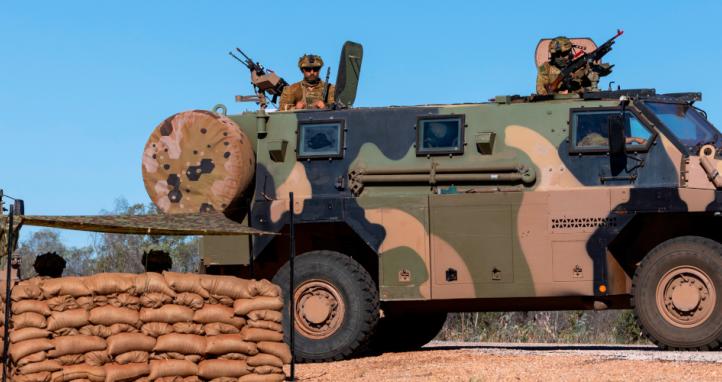Lance Corporal Bernard Sidney Gordon VC, MM (1891 - 1963, 72yo)
 Bernard Gordon was born in Launceston, Tasmania on 16 August 1891. After completing his schooling in Deloraine and Devonport, he worked as a cooper’s machinist in Beaconsfield before relocating to Townsville, Queensland.
Bernard Gordon was born in Launceston, Tasmania on 16 August 1891. After completing his schooling in Deloraine and Devonport, he worked as a cooper’s machinist in Beaconsfield before relocating to Townsville, Queensland.
He enlisted in the Australian Imperial Force on 27 September 1915 and was posted to the 41st Battalion. Gordon departed for overseas service in May 1916, serving on the Western Front in France and Belgium throughout the remainder of the war. In June 1918, he was promoted to Lance Corporal.
Gordon’s first major recognition came in July 1918, when he was awarded the Military Medal for gallantry during the successful attack on Hamel. Just weeks later, his actions during operations east of Bray on 26–27 August 1918 earned him the Victoria Cross. According to his citation, Gordon demonstrated exceptional initiative and fearlessness. Under intense fire, he led his section to their objective and then, acting alone, assaulted an enemy machine-gun position that was inflicting serious damage on neighbouring troops. He killed the gunner, captured the post—including one officer and ten men—and proceeded to clear a nearby trench, capturing another twenty-nine prisoners and two more machine-guns. In total, Gordon captured two officers, sixty-one other ranks, and six machine-guns, largely unaided.
On 1 September 1918, during the advance on Mont St Quentin, Gordon was wounded in action. He returned to Australia in January 1919 and was formally discharged in April.
In later years, Gordon remained a figure of quiet national pride. He attended the 1956 centenary celebrations of the Victoria Cross in London and was honoured in 1960 with the naming of the Gordon Soldiers' Club in Cabarlah, Queensland. He passed away on 19 October 1963 in Torquay, Queensland.
Corporal James Heather (Jim) Gordon VC (1907 - 1986, 77yo)
 Jim Gordon was born in Rockingham, Western Australia on 7 March 1907. After completing his schooling, he worked in a variety of roles including as a drover, rouseabout, and farmer. In the years leading up to World War II, he was employed as a battery worker on the goldfields.
Jim Gordon was born in Rockingham, Western Australia on 7 March 1907. After completing his schooling, he worked in a variety of roles including as a drover, rouseabout, and farmer. In the years leading up to World War II, he was employed as a battery worker on the goldfields.
He enlisted in the Australian Imperial Force on 26 April 1940. Deployed to the Middle East in September that year, Gordon joined the 2/31st Battalion in February 1941. During the Syrian campaign in June and July, his unit fought against Vichy French forces. On the night of 9–10 July 1941, his company—already weakened by losses—was tasked with securing high ground near the villages of Amatour and Badarane, north of Jezzine. Their advance was stalled by enemy machine-gun fire. Acting on his own initiative, Gordon crept forward under intense fire and grenades, then launched a frontal charge, killing four enemy gunners with his bayonet. His bravery broke the enemy’s resistance in that sector and inspired the battalion to press forward. He was awarded the Victoria Cross for this action.
After recovering from malaria, Gordon arrived in Papua in November 1942, where the 2/31st was engaged in fierce fighting around Gona. In January 1943, he returned to Australia and was promoted to acting Sergeant. He was confirmed in that rank while en route back to New Guinea in July. During the September advance toward Lae, he led another courageous assault on a machine-gun position. While he may have been considered for an additional award—possibly a second VC—no further decoration was issued. Gordon later quipped, "Just as well, too. Imagine what my cobbers would have called me then."
He took part in subsequent campaigns in the Markham and Ramu valleys before returning to Australia in January 1944. After the war, Gordon joined the Australian Regular Army on 2 December 1947. He served as a cadet instructor in Western Australia and was promoted to temporary Warrant Officer Class Two in October 1949. He retired from active service on 1 August 1968 and later worked as a groundsman at Campbell Barracks in Swanbourne until 1975.
A reserved and modest individual, Gordon was known to tuck his Victoria Cross into his pocket after ceremonies to avoid attention. He passed away on 19 July 1986 and was cremated with full military honours.
Last Reviewed 06/2025









